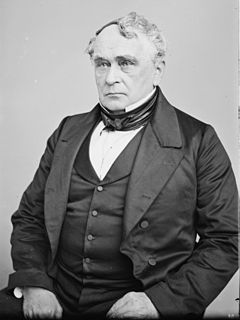A Quote by Alexis de Tocqueville
Religion, which never intervenes directly in the government of American society, should therefore be considered as the first of their political institutions
Related Quotes
Shouldn't the American leadership be addressing what is happening in America, with its domestic policies on racism, discrimination, illegal monitoring, solitary confinement, torture, Guantanamo Bay and any other social and political issues related to the American society not directly connected to Islam? American Muslims must speak out and be involved as well in international policies and, through their institutions, they should raise their voice. This is the way you serve the community.
Before any man can be considered as a member of Civil Society, he must be considered as a subject of the Governour of the Universe: And if a member of Civil Society, do it with a saving of his allegiance to the Universal Sovereign. We maintain therefore that in matters of Religion, no man's right is abridged by the institution of Civil Society and that Religion is wholly exempt from its cognizance.
The ultimate aim of politics is not politics, but the activities which can be practised within the political framework of the State. Therefore an effective statement of these activities - e.g. science, art, religion - is in itself a declaration of ultimate aims around which the political means will crystallise... a society with no values outside of politics is a machine carrying its human cargo, with no purpose in its institutions reflecting their care, eternal aspirations, loneliness, need for love.
I believe this nation hungers for a spiritual revival; hungers to once again see honor placed above political expediency; to see government once again the protector of our liberties, not the distributor of gifts and privilege. Government should uphold and not undermine those institutions which are custodians of the very values upon which civilization is founded-religion, education and, above all, family. Government cannot be clergyman, teacher and patriot. It government is our servant, beholden to us.
I believe in a wall between church and state so high that no one can climb over it. When religion controls government, political liberty dies; and when government controls religion, religious liberty perishes. Every American has the constitutional right not to be taxed or have his tax money expended for the establishment of religion. For too long the issue of government aid to church related organizations has been a divisive force in our society and in the Congress. It has erected communication barriers among our religions and fostered intolerance.
It will always be considered a praiseworthy undertaking to urge the most obstinate and incredulous to abide by the principles that impel men to live in society. There are, therefore, three distinct classes of vice and virtue: the religious, the natural, and the political. These three classes should never be in contradiction with one another.
Religious institutions that use government power in support of themselves and force their views on persons of other faiths, or of no faith, undermine all our civil rights. Moreover, state support of an established religion tends to make the clergy unresponsive to their own people, and leads to corruption within religion itself. Erecting the 'wall of separation between church and state,' therefore, is absolutely essential in a free society.
Religion in America . . . Must be regarded as the foremost of the political institutions for that country; for if it does not impart a taste for freedom, it facilitates the use of it . . . I do know know whether all Americans have a sincere faith in their religion - for who can search the human heart? - But I am certain that they hold it to be indispensable to the maintenance of republican institutions. This opinion is not peculiar to a class of citizens or a party, but it belongs to the whole nation and to every rank of society.
I have always considered Christianity as the strong ground of republicanism. The spirit is opposed, not only to the splendor, but even to the very forms of monarchy, and many of its precepts have for their objects republican liberty and equality as well as simplicity, integrity, and economy in government. It is only necessary for republicanism to ally itself to the Christian religion to overturn all the corrupted political and religious institutions of the world.
Capitalism is a system in which the central institutions of society are, in principle, under autocratic control. Thus, a corporation or an industry is, if we were to think of it in political terms, fascist, that is, it has tight control at the top and strict obedience has to be established at every level. [...] Just as I'm opposed to political fascism, I am opposed to economic fascism. I think that until the major institutions of society are under the popular control of participants and communities, it's pointless to talk about democracy.
In a government institution, there is only one area in which problems are taken seriously, and that is the political. Many of the strange things done in American educationism suddenly become perfectly understandable when we see them not as educational methods but as political maneuvers. We must understand illiteracy, therefore, the root of ignorance and thoughtlessness, as not some inadvertent failure to accomplish what was intended but simply a political arrangement of great value to somebody.
I have therefore come to the opinion that the most reasonable recourse for the humanization of society and its institutions is to abandon them and begin again to build a society with a just, equitable and compassionate economy with justice, equality, and reverence for all life insured by the goals and forms of all its institutions.





































